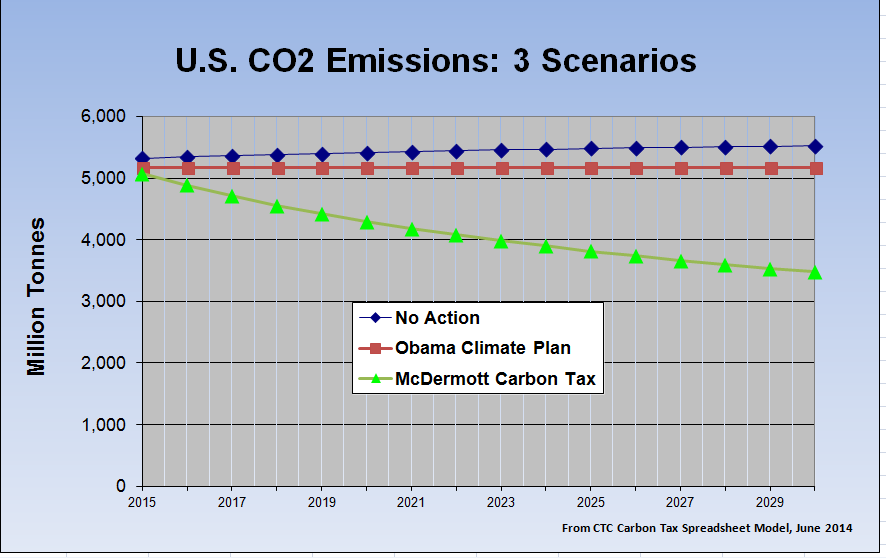Carbon Tax

Would a carbon tax be effective in reducing GHG emissions while still growing the economy? David W. Kreutzer, Ph.D. of the Center for Data Analysis examined the Boxer-Sanders Carbon Tax proposed in the Climate Security Act of 2013. The bill would’ve been $20 per metric ton of carbon and it would’ve risen by 5.6% each year until 2030.
Today, America is spewing about 5,215,200,000 tons of CO2 into the environment each year. With the proposed carbon tax that would be reduced to about 3,500,000,000 a year by 2030. Also, the act included a return dividend of 100% of the collected money to taxpayers. Coal production would drop 60%. This all sounds great, right? Let’s shift our view to the economic standpoint.
Kreutzer and many other analysts predict this plan would cause a loss of 400,000 jobs in three years. A difference of $146 billion in GDP at 2030. Coal employment dropping more than 40%. Gas prices rising $0.20 and electricity prices rising 20% in three years. The average family losing $1,000 of income a year.
Do the costs outweigh the benefits? Is there an effective way to sustain the economy and preserve the environment? How much time do we have before we need to make an environmental change? Will we have to sacrifice our economy for an environment we can live in? 
